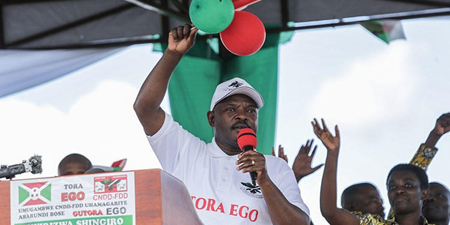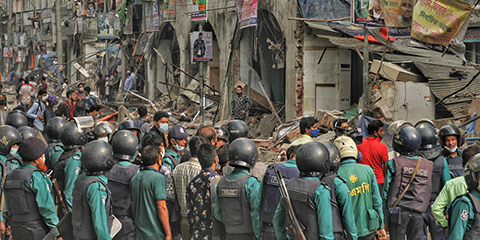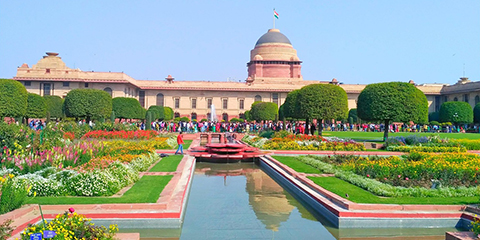Burundi media regulator suspends BBC and VOA, warns other broadcasters
JournalismPakistan.com | Published 7 years ago
Join our WhatsApp channel
NAIROBI - Authorities in Burundi should immediately lift a six-month licencing suspension imposed on radio broadcasts of the British Broadcasting Corporation (BBC) and Voice of America (VOA), the Committee to Protect Journalists said.
Burundi's National Communication Council (CNC), the media industry regulator, on May 4 accused the two stations of breaching the country's media laws and professional ethics and ordered the stations' licence suspended, according to a statement from the regulator. A government agency that regulates telecommunication subsequently turned off their signals, according to media reports.
The media regulator accused the BBC of broadcasting "exaggerated, non-verified, defamatory" comments made by a Brussels-based activist that were harmful to the reputation of Burundian President Pierre Nkurunziza during an April 24 broadcast of the French-language program L'invité de la Semaine, according to CNC Chairman Ramadhan Karenga who spoke to CPJ and a report by The EastAfrican newspaper.
In its statement, the CNC also claimed that on four different occasions in April, VOA aired content that lacked balance, fell short of rigorous verification of sources, and prejudiced Burundi's relations with the United Nations. The U.S. government-funded station is also facing allegations from the media regulator of hiring a journalist sought by Burundian law enforcement and partnering with Bonesha FM, a local station that has been banned by the government, according to Karenga and the report by The EastAfrican.
The BBC and VOA suspension, which became effective today, comes before a May 17 constitutional referendum that, if passed, could extend Nkurunziza's rule to 2034. Two journalists who spoke on condition of anonymity out of fear for their security told CPJ that the bans were attempts by the government to silence critical voices ahead of the referendum.
"These actions are a transparent attempt to silence the media during this politically sensitive period when Burundians are in most urgent need of information to make important political decisions," said CPJ Africa Program Coordinator Angela Quintal from New York. "It is not too late to rethink this ill-informed decision, and the regulator should immediately lift the suspension and allow the press to operate freely."
Karenga told CPJ that the decision to suspend the media outlets had nothing to do with the upcoming referendum but was about ensuring stations meet regulatory standards, especially about balance. He added that the stations had the opportunity to appeal directly to the regulator or the courts.
The VOA condemned the suspension and said its content would be "available in Kirundi and Kinyarwanda via shortwave channels, on the Internet and FM transmitters located in neighboring countries." In a separate statement to CPJ, the VOA said that it was "exploring legal options that would permit its broadcasting operations to reopen in Burundi as quickly as possible."
In an emailed statement, the BBC told CPJ that it was "disappointed" by the government action and said it would respond appropriately against "any broadcast" found to be falling short of "strict editorial guidelines."
The CNC also issued warnings in the May 4 statement to Radio France International (RFI) and two local, privately owned radio stations, Isanganiro and CCIB-FM Plus. RFI was accused of broadcasting dishonest reports about the referendum. The CNC said that the two local radio stations failed to verify sources in their reporting and did not stick to the programming schedule they had submitted to the regulator.
Yves Rocle, Africa director of RFI, told CPJ that he was not precisely sure of the accusations facing the station but "apparently" a guest's comments displeased the CNC, though he did not specify which guest.
CPJ could not reach CCIB-FM Plus or Isanganiro for comment.
Burundi once had a robust press, but the media environment has become hostile in recent years. Between April 2015 and August 2015, at least 100 Burundian journalists fled into exile, following attacks, threats and intimidation during a political crisis that included an attempted coup, according to CPJ research. – A CPJ News Alert
Photo caption: Burundi's President Pierre Nkurunziza speaks during the launch ceremony on May 2, 2018, for a constitutional referendum scheduled for May 17 that would allow him to remain in power for another 16 years.- AFP/STR

























